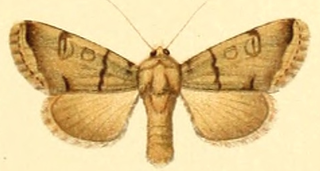
The Syllabus of Errors is the name given to a document issued by the Holy See under Pope Pius IX on 8 December 1864, as an appendix to his encyclical letter Quanta cura. It condemns a total of 80 propositions that the pope considered as errors or heresies.

First Communion is a ceremony in some Christian traditions during which a person of the church first receives the Eucharist. It is most common in many parts of the Latin Church tradition of the Catholic Church, Lutheran Church and Anglican Communion. In churches that celebrate a rite of First Communion separate from baptism or confirmation, it typically occurs between the ages of seven and thirteen, often acting as a rite of passage. In other denominations first communion ordinarily follows the reception of confirmation, which occurs at some point in adolescence or adulthood, while Eastern Orthodox and Oriental Orthodox Christians first receive the sacrament of Holy Communion in infancy, along with Holy Baptism and Chrismation.

Quam singulari was a decree released by Pope Pius X in 1910, concerning the admittance of children to the Eucharist. This followed a decree by the Sacred Congregation of the Council, five years before on frequent Communion.
Frequent Communion is the Roman Catholic practice of receiving the Eucharist frequently, as opposed to the usual medieval practice of receiving it once or a few times a year, by going to mass on Sundays.
Dypsis singularis is a species of flowering plant in the Palm Family. It is found only on the island of Madagascar. It is threatened by habitat loss. It is remarkable for its height to width ratio; the greatest of any tree. It is up to 19ft 8in tall while being only 2/5ths of a inch in diameter, a length/width ratio of 600 fold.

Renea moutonii singularis is a subspecies of land snail with an operculum, a terrestrial gastropod mollusk in the family Aciculidae. It was described by Pollonera in 1905. The common name is needle snail.

Prasinoderma is a genus of green algae in the phylum Prasinodermophyta. Both species in the genus are unicellular, but P. coloniale forms loose sticky colonies.
The invincible ignorance fallacy, also known as argument by pigheadedness, is a deductive fallacy of circularity where the person in question simply refuses to believe the argument, ignoring any evidence given. It is not so much a fallacious tactic in argument as it is a refusal to argue in the proper sense of the word. The method used in this fallacy is either to make assertions with no consideration of objections or to simply dismiss objections by calling them excuses, conjecture, etc. or saying that they are proof of nothing, all without actually demonstrating how the objection fit these terms. It is similar to the ad lapidem fallacy, in which the person rejects all the evidence and logic presented, without providing any evidence or logic that could lead to a different conclusion.

Dichagyris singularis is a moth of the family Noctuidae. It is found from Turkmenistan to south-eastern Turkey, parts of the Middle East, Jordan, Israel, Iran and Afghanistan.
Josemania singularis, synonym Cipuropsis singularis, is a species of flowering plant in the family Bromeliaceae. This species is native to Costa Rica and Panama.

The Protepeolini are a tribe of cuckoo bees in the family Apidae, containing only one genus, Leiopodus.
Copelatus singularis is a species of diving beetle. It is part of the subfamily Copelatinae in the family Dytiscidae. It was described by Bilardo & Rocchi in 1995.

Baliochila singularis, the Lannin's buff, is a butterfly in the family Lycaenidae. It is found in Botswana and Zimbabwe. Its habitat consists of bushveld and Brachystegia woodland.

Eunicella singularis, the white gorgonian, is a species of colonial soft coral, a sea fan in the family Gorgoniidae. It is found in the western Mediterranean Sea, Adriatic Sea and Ionian Sea. It was first described in 1791 by the German naturalist Eugenius Johann Christoph Esper.
Phrynidius armatus is a species of beetle in the family Cerambycidae. It was described by Linsley in 1933.
Phrynidius inaequalis is a species of beetle in the family Cerambycidae. It was described by Say in 1835. It is known from Mexico and Honduras.
Phrynidius salvadorensis is a species of beetle in the family Cerambycidae. It was described by Franz in 1954. It contains two subspecies, P. salvadorensis montecristensis and P. salvadorensis salvadorensis.

Singularis Holdings Limited v Daiwa Capital Markets Europe Limited[2019] UKSC 50 is a judicial decision of Supreme Court of the United Kingdom relating to the duties owed by a bank where a person acting on behalf of a corporate customer of the bank directs the bank to transfer money out of the company's account as part of a fraudulent scheme.

Exsul singularis, the bat-winged fly, is a species of fly that is endemic to New Zealand, first described by Frederick Hutton in 1901. The males have enormously expanded wings. The species is found in the south-western South Island and occurs mostly in high-altitude meadows near streams. It preys on soft-bodied flying insects and is believed to uses its wings to increase its body temperature to offset the cool temperatures of its alpine habitat.
Anolis singularis, the Macaya green twig anole or porcupine anole, is a species of lizard in the family Dactyloidae. The species is found in Haiti and the Dominican Republic.










